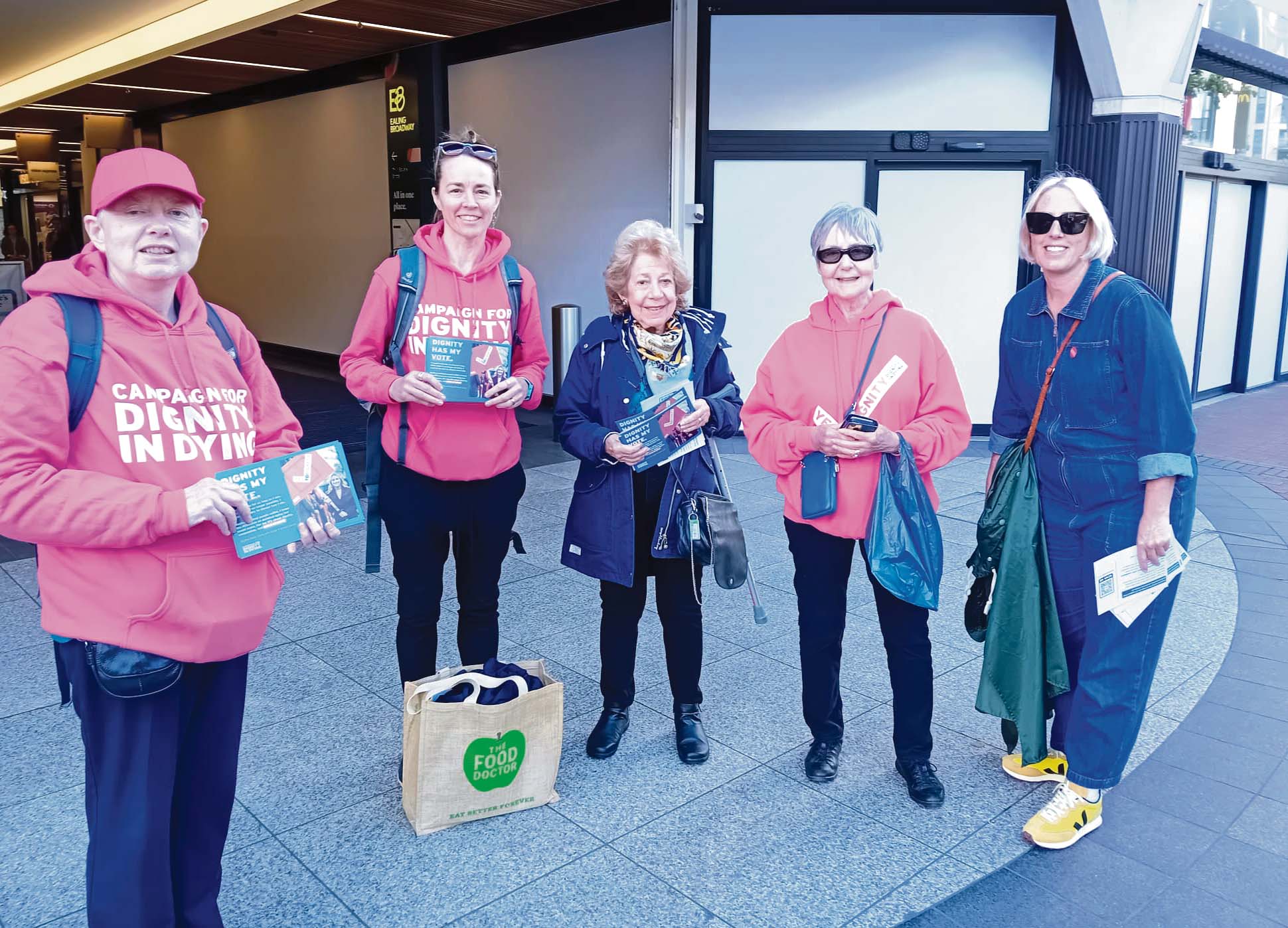Most want an option of assisted dying
FORUM: ‘There is no dignity in dying in agony… An assisted death should not be because there is no palliative care,’ argues Janice Long
Thursday, 10th October 2024 — By Janice Long

Janice Long with colleagues from North West London Dignity in Dying
WE are all busy people. I know I try to plan my diary to do what I need to do.
But things happen… and there are two things that are definite. Death and taxes.
Since being asked to write this article a lot has changed. I was preparing to campaign on Richard, Lord Faulkner’s private members’ bill on assisted dying. But then experienced the sudden death of a sibling.
So my readjusted plans to be out campaigning for the bill changed as I had to organise a funeral and probate.
And then the news came that MPs will have a vote on assisted dying in this parliament, as Kim Leadbeater MP, who was number one in the draw for PMBs has chosen assisted dying for the terminally ill as the subject of her bill.
Tempered with the death of a close family member, there is the relief that a person with a progressive illness will not deteriorate further and care in the future does not have to be planned for. And that leaves aside the question of when care becomes palliative care.
But did we ever discuss what they wanted in the future? No.
On October 16 the title of Leadbeater’s bill will be read out in parliament. It is likely to mirror Faulkner’s bill and will be for an assisted death for terminally ill, mentally competent, people. The title cannot be changed though debate can change the wording of the bill.
Polling earlier in 2024, by Opinium, showed that there was majority support for assisted dying in every parliamentary constituency, and thereby majority support in the country.
Since the survey the general election has changed the make-up of parliament and prime minister Sir Keir Starmer has also said he will allow parliamentary time for the bill to be debated. Private members’ bills, however good they are, can be talked out by opponents.
Both Leadbeater’s and Faulkner’s PMBs are based on the assisted dying system used in Oregon in the United States, Australia and New Zealand. This limits assisted dying to people who are diagnosed with a terminal illness and are mentally competent.
It is guaranteed that the opponents of assisted dying will mention the systems in Canada, Belgium and the Netherlands.
I have sympathy with the demands to end “unbearable suffering” but a legal definition will be hard to define; whereas an illness which means you are “terminally ill” is easier to diagnose. Though it is recognised that an assessment of how long a person will live is not an exact science.
In England and Wales palliative care is rarely provided by the National Health Service but is reliant on the charity sector. Those who get a service, together with their family and friends, will praise it and then often take part in fundraising.
But getting palliative care is not guaranteed. For some illnesses the best palliative care in the world cannot stop the pain. Or palliative care will mean being drugged to a state of unconsciousness.
There is no dignity in dying in agony or in a comatose state. An assisted death should not be because there is no palliative care; more palliative care must be provided but it is not the answer for everyone.
A sudden death takes away the need of an assisted death.
But it doesn’t remove the need to talk about planning for your own death. And the practical issues of writing a will and planning your funeral.
We must be more honest and talk about what we want. And the majority of us want the option of an assisted dying.
I now have a will and am paying up-front for my funeral. One thing I still know, I do not want to die like my Mum.
• Janice Long, North West London Group, Dignity in Dying.
northwestlondon.group@dignityindying.org.uk